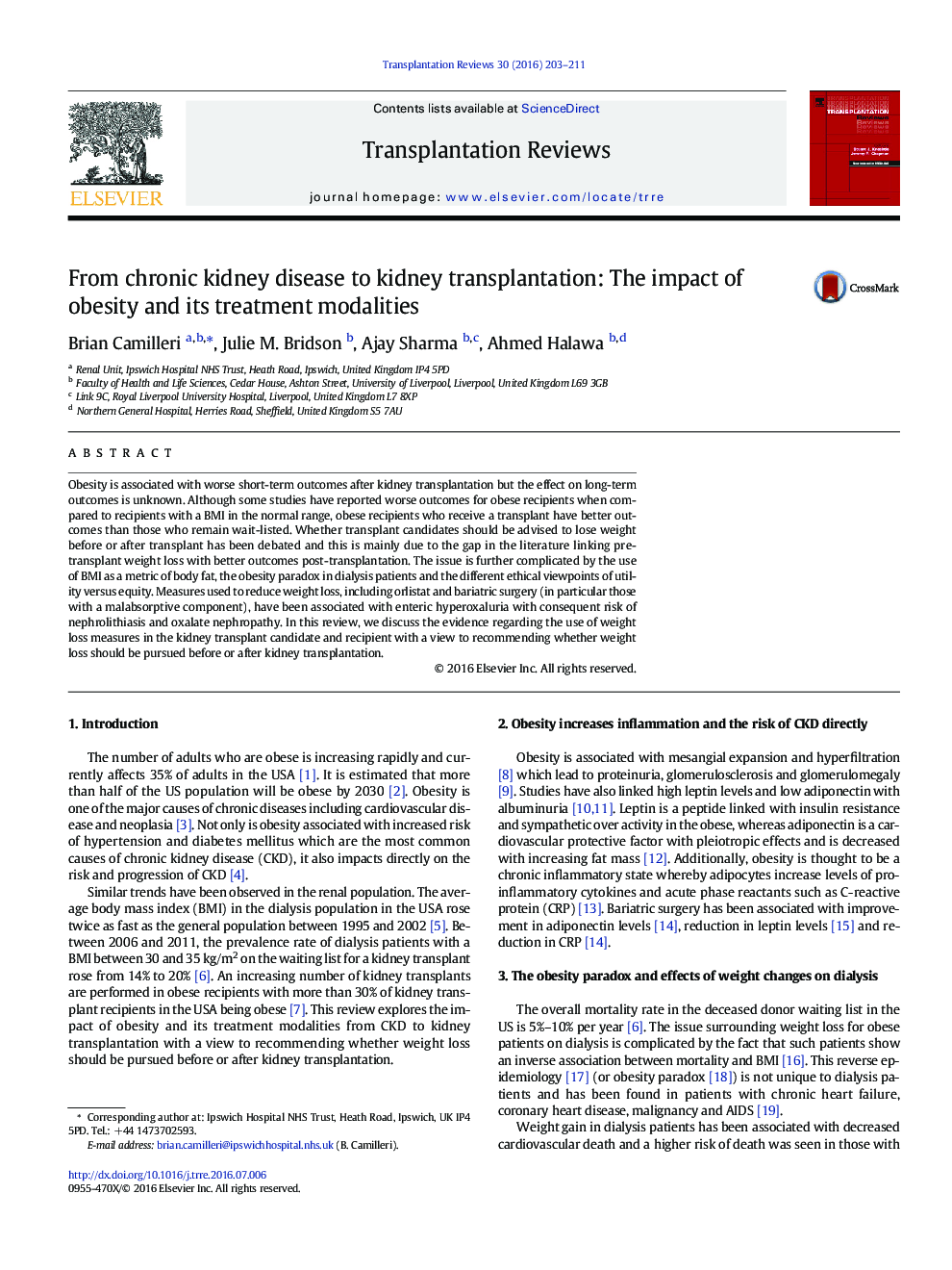| کد مقاله | کد نشریه | سال انتشار | مقاله انگلیسی | نسخه تمام متن |
|---|---|---|---|---|
| 4267197 | 1610683 | 2016 | 9 صفحه PDF | دانلود رایگان |
Obesity is associated with worse short-term outcomes after kidney transplantation but the effect on long-term outcomes is unknown. Although some studies have reported worse outcomes for obese recipients when compared to recipients with a BMI in the normal range, obese recipients who receive a transplant have better outcomes than those who remain wait-listed. Whether transplant candidates should be advised to lose weight before or after transplant has been debated and this is mainly due to the gap in the literature linking pre-transplant weight loss with better outcomes post-transplantation. The issue is further complicated by the use of BMI as a metric of body fat, the obesity paradox in dialysis patients and the different ethical viewpoints of utility versus equity. Measures used to reduce weight loss, including orlistat and bariatric surgery (in particular those with a malabsorptive component), have been associated with enteric hyperoxaluria with consequent risk of nephrolithiasis and oxalate nephropathy. In this review, we discuss the evidence regarding the use of weight loss measures in the kidney transplant candidate and recipient with a view to recommending whether weight loss should be pursued before or after kidney transplantation.
Journal: Transplantation Reviews - Volume 30, Issue 4, October 2016, Pages 203–211
